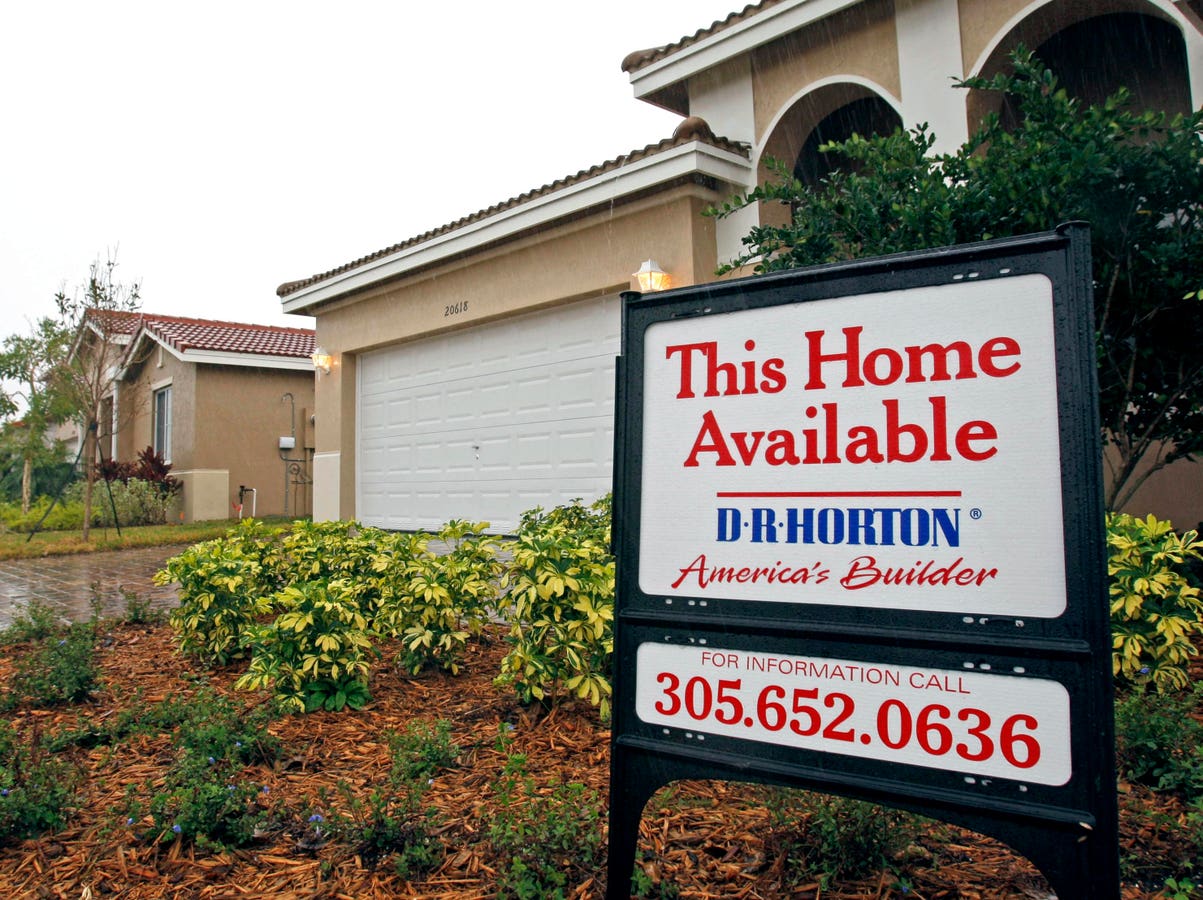In its latest earnings report, America’s largest homebuilder D.R. Horton said it expects too boost sales incentives in the fourth quarter. (AP Photo/Alan Diaz)
Copyright 2010 AP. All rights reserved.
At the height of the pandemic, homes were flying off the market in Atlanta, with bidding wars driving up prices in one of the fastest-growing cities in the country. Now, in the broader metro area and across the U.S., the balance is shifting in buyers’ favor as persistently higher mortgage rates stifle demand and more inventory hits the market.
A recent Zillow report found that the U.S. housing market is more evenly weighed between buyers and sellers than it’s been in the last five years, with 28 of the nation’s 50 largest metro areas having either a neutral or buyer-advantaged market. Buyers have the biggest leg-up in markets that, up until recently, had been white hot—particularly in the South, including Austin, Texas, and Tampa, Florida.
Much of that is due to a surge in inventory: There were 1.36 million homes actively for sale in June, the most since November 2019, though inventory remains 21% below pre-pandemic averages.
But with home sales dropping, why doesn’t it feel like an easy market for those who want to buy a home? It all comes down to affordability. The average 30-year mortgage rate is sitting at 6.74%, and the median sales price for existing homes reached a record of $435,300 for June.
Homebuilders rushed to construct new inventory during Covid-19 as historically low mortgage rates opened the demand floodgates. But now, some are slashing prices to get buyers in the door, and offering perks like mortgage rate buydowns and home upgrades—sales incentives that America’s largest homebuilder D.R. Horton expects to increase in the fourth quarter, according to its earnings report released last week.
All of that means more deals for those who can afford to purchase. More than a quarter of listings had price cuts, Zillow found, reaching the highest share for any June since at least 2018, when it first started collecting the data.
Tim Hur, a broker at Atlanta-area Point Honors and Associates, Realtors, said buyers are being picky and waiting for sellers to drop prices.
“I’m definitely seeing a lot of buyers coming out of the woodwork again wanting to see homes,” he says. “They kind-of have an expectation of what they want.”
Mia Jung and Haley Byun, both in their 30s, started their housing search in an Atlanta suburb around a year ago. Though interest rates have forced them to reduce how much they’re willing to pay for a home, they see an upside: less competition. The couple says at least half of the homes they have looked at have had price cuts, and while they were disappointed that a recent contract fell through during inspection, they feel confident negotiating.
“It surprised me a little knowing that we have this flexibility and seeing the house prices just continuously go down,” says Jung. “So we have the comfort of knowing we can hold out somewhat.”
The data suggests buyers and sellers are settling into a new normal, with little hope of interest rates returning anytime soon to the 3% range that drove the pandemic-era buying spree. Though the Federal Reserve kept rates steady at its meeting on Wednesday, the central bank said in March it expects to cut them twice this year. Nonetheless, mortgage rates are still projected to land at 6% at the end of 2026, according to Fannie Mae.
“A price correction is necessary in order to keep housing sales moving in a positive direction,” says Zillow senior economist Orphe Divounguy.
That adjustment could already be underway: Home prices recorded their smallest year-over-year jump in nearly two years in May, according to the latest S&P CoreLogic Case-Shiller Index data released Tuesday, and Redfin found that prices declined this week in more than a quarter of the 50 biggest metro areas, especially in parts of Florida and Texas.
For sellers, the new reality means shifting their expectations, especially if they bought during the market frenzy. Renovating and making the house look presentable go a long way, Hur says. “Unfortunately, the days of slapping it on the MLS are just gone.”
